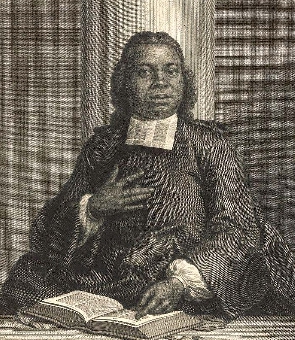 A portriat of Jacobus Capitein
A portriat of Jacobus Capitein
In 1717, Jacobus Elisa Johannes Capitein was born in the Gold Coast, with the exact place and date of his birth unknown.
His journey to becoming a writer, poet and missionary began after he was sold into slavery at the age of seven - an act that was rampant during the period.
According to blackpast.org, Jacobus Capitein was sold to a sea captain named Arnold Steenhard, who later gave him as a present to his friend and slave merchant, Jacob van Gogh. He lived with his master for about two years in the Dutch Fort of Elmina in Ghana prior to leaving for Holland in 1728.
Upon arriving in the Netherlands, he gained his freedom shortly after the act of liberating all slaves was officially announced in the country. He then began to learn the Dutch language, which helped him commence missionary work in The Hague.
Jacobus Capitein is said to have attended the catechism class of the local Reformed Church in The Hague, where he was later baptized.
After a while, he made his intention known to become a missionary in Africa with the support of his master, Van Gogh, who assisted him in getting an education.
In 1737, Jacobus Capitein went to the University of Leiden, where he studied theology – a course that will later come in handy to his missionary work.
Before graduating from the university in 1742, he wrote a dissertation that defended slavery on theological and Christian grounds.
This gained him widespread attention and appreciation among theologians and slave traders at the time - although slavery is frowned upon to date.
Jacobus Capitein later became the first Black minister of the Dutch Reformed Church. He later boarded a ship to return to Elmina, which is in the present-day Central Region of Ghana, where he officially began his missionary work after expanding his knowledge in Latin, Greek, and Hebrew.
While in Elmina, Capitein translated the Bible from Dutch into the Fanti dialect as part of his missionary efforts with the local population.
He also tried to revive a religious school meant for mixed-race [mullato] children that had been started by the Dutch, where he translated religious texts into Fanti for understanding.
Despite a few successes during his return home, the lack of support from the West Indian Trading Company and his church, Classis in Holland, hampered his progress and subsequently rendered him in debt after he borrowed large sums of money from creditors to assist his work.
Jacobus Elisa Johannes Capitein sadly died on February 1, 1747. He was 30-years-old.
MA/DA